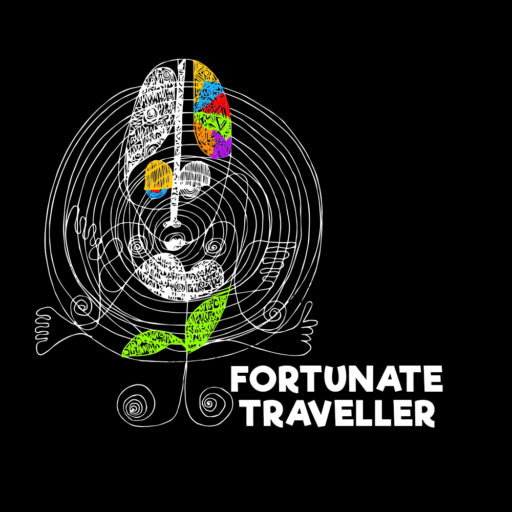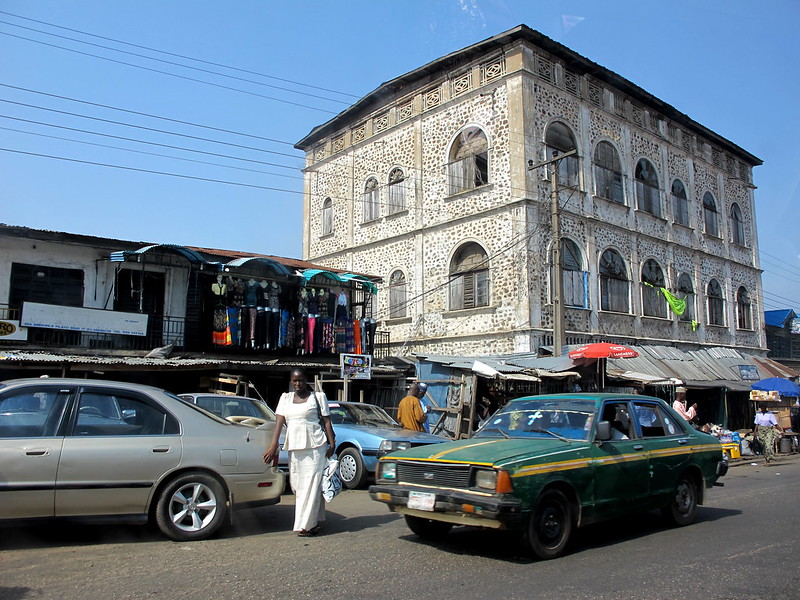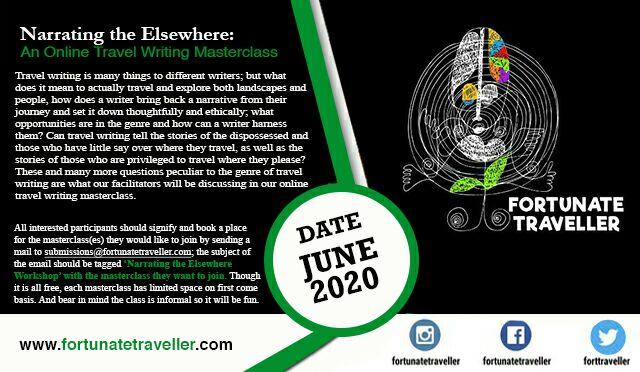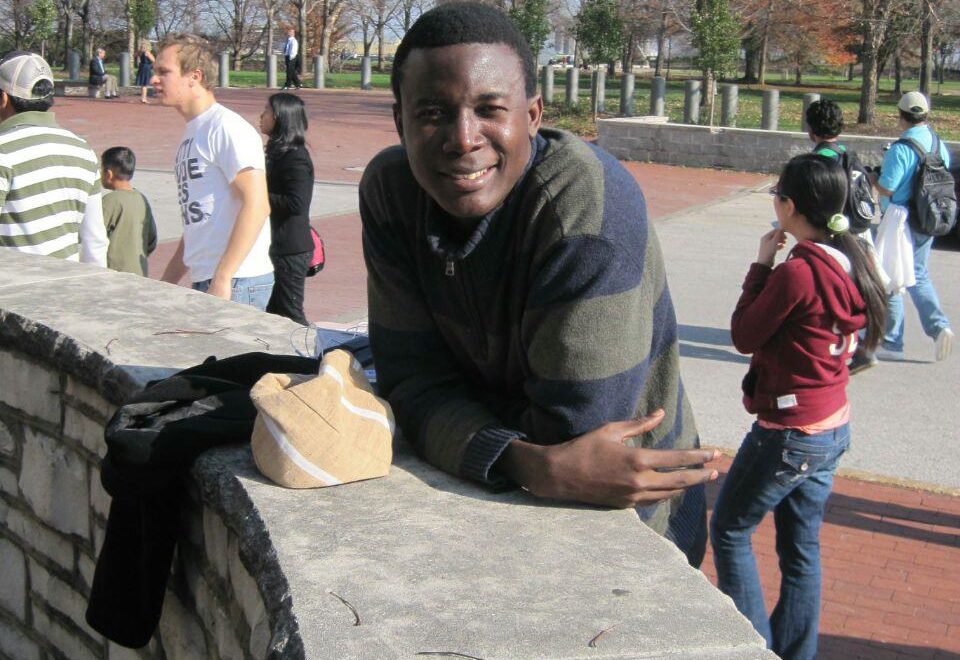
Kọ́lá Túbọ̀sún is a Nigerian linguist and travel writer born and raised in Ibadan, Nigeria. His writings and language advocacy have earned him a variety of recognitions including the 2009 Fulbright Scholarship, which initiated the experience that formed the backdrop of his new book, Edwardsville by Heart (2018); the 2016 Premio Ostana Prize, becoming the first African to be so-honoured, and recently, the 2018 Miles Morland Scholarship.
Apart from KTravula.com, a travel blog he has maintained since 2009, KT’s works, as he’s fondly called by peers, have also appeared in several international journals and magazines such as Enkare Review, Sentinel Poetry Quarterly, Brittle Paper, Aké Review, African Writer, NTLitMag, and Saraba Magazine, which published his poetry chapbook Attempted Speech and Other Fatherhood Poems (2015).
Here, in this conversation with Adédàpò Treasure, conducted via email, Kọ́lá discusses what it means to be a stranger as well as a traveller, his new book of poetry, Edwardsville by Heart touching on his favourite travel destinations, amongst other things.
Adédàpò Treasure for Fortunate Traveller: I’m curious about what you think of the relationship that exists between places and languages. What, if any, do you think language and location have in common? Do certain places convey specific values and significance the way a language would do?
Kọ́lá Túbọ̀sún: I’ve found that, usually without premeditation, my interaction with a place often veers into my curiosity about language – either about the language spoken in the place, or how my own language competence and/or limitations play into how my experience is shaped. It is subconscious, but it is something I have welcomed. When I wrote about meeting Ṣóyínká, for instance, even without meaning to, I was paying attention to his use of language. My questions to him were both in English and Yorùbá and code-mixed speech, which wasn’t weird at all. When he spoke in Yorùbá, to me or to others, I was trying to trace his influences and accents. When I was writing the essay, I was also conscious of my own criticism of modern writing patterns where Yorùbá words are written without diacritics while foreign ones aren’t.
So, it will appear that I find places as peculiar as languages spoken there, with colours and nuances waiting to be discovered, even when the language is one with which we are already familiar. I remember being yelled at by a policeman, one time, at the St. Louis Lambert Airport in the US. I had left my car unattended for a few minutes to help a colleague get his luggage into the airport. But that was against the law. And when I tried to explain to the cop why I had left, and why it was just for a short period, he kept yelling ‘Do you speak English? Can’t you see the sign? Can you read?’ which was more rhetorical and aggressive than I expected. He wouldn’t listen to anything I said. He was only interested in sending a message about his superiority, authority, and snobbishness at the same time.
I was trained in linguistics, so maybe language curiosity is baked into my approach to everything I see, and that I can never truly escape the urge to see everything through the lens that language presents.
FT: Seen from different perspectives, a traveller can both be a visitor and a stranger. What sense do you make of the relationship between these seemingly disparate identities?
KT: Often, we are both. In every new place, we are strange to the norms and customs. But we are also, usually, innately familiar with what is common in our humanities. It is usually time, personal attitude, and intentions that reveal how we are eventually assessed. I lived in Southern Illinois for three years. At the end of that trip, I considered myself sufficiently familiar with every part of that space to no longer be a stranger, but things still happened to me in my last year that reminds me that homeliness is a continuing process constantly negotiated. I wrote about a few of those experiences in my new collection of poems. It’s the same way I feel about Lagos.
FT: I also like to think of a travel writer as a reader. How do you respond to places that share only slight semblances with their descriptions in books you’ve previously encountered?
KT: I’ve noticed that it is often unhelpful to approach a place only by others’ descriptions. Reading has its benefits, for sure, but travelling and travel writing are two different things, the latter often being motivated more by the pleasure of writing than by the trip itself, or by both to varying degrees. Before I visited South Korea, for instance, I read all I could about it, started learning the language, and watched Anthony Bourdain’s Parts Unknown he shot in Seoul. But everything went out of the window as soon as I stepped out of the plane.
Nothing beats personal contact, otherwise, travel stories would have been enough to keep people from travelling at all. What writing does, however, is help create an imaginative copy of a place through someone else’s words, useful for advance assumptions that eventually get tested on contact, or as a souvenir of a shared impression after contact has been made. I’m currently reading Mark Twain’s The Innocents Abroad (1869), which is his account of travel, by ship, to Europe and the Holy Land. It’s a detailed travelogue filled with wicked humour, some condescension, and fascinating details. But I realized, pretty early into the book, that I am reading it for Twain’s own writing style, observational skills, and the historical context than for any notable insight into Europe, Israel, or the other places in North Africa he had visited. And like I said, his descriptions contained some unexpected condescensions to things he didn’t understand (for instance, the culture of carrying children on one’s back). Yet I read, not necessarily for direction, but for the pleasure.
FT: How much of recollection do you entrust to a notepad or a camera? How much of your travels do you entrust to the safety of memory?
KT: My blog was especially helpful during my graduate school years when it functioned as some sort of daily diary. The posts I wrote from August 2009 to July 2012 fall into this category. They were contemporaneous accounts in text and photographs that I could return to later to refresh my memory. Adulthood and a busier life in Lagos have denied me the chance of such regular journaling online, so memory becomes very helpful. I also use paper notebooks and I jot observations down on my phone when I can. I have found, on looking back, that some things take a more different look when observed from far away, so the contemporaneous note-taking is very important.
FT: I wonder what role curiosity plays in your choice of destinations. Or, generally, what leads you to places?
KT: When I lived in the US, some of the places I found myself in were conditioned by what had brought me there. I was a scholar, teacher, and student. But in-between that were stretches of time where my own curiosity, boredom, or sense of adventure, got me out of my bed onto the road to see something new. I remember once driving a date to go see a haunted house. She had no idea where we were going and had started to get worried halfway up the hill into this isolated place. When she finally realized where we were going, she almost didn’t let me out of the car, worried that I’d be shot for trespassing!
So, both have their advantages, but curiosity will get you out the door. For my travels within Nigeria, I have pursued things that interested me, mostly in historical narratives. When I first returned home in 2010, for instance, I was disturbed by guilt that I had travelled more within the US than in my own country, so I woke up one morning, strapped a backpack on, and headed northwards. First to Ifẹ̀ and then to Ìkàrẹ́ to Ìlọrin to Kaduna to Zaria to Abuja to Jos, to Lafia and then to Lagos. None of it was planned, but each place revealed an interesting treasure in Nigeria that I wouldn’t have otherwise encountered. My work on Ìlọ́jọ̀ Bar came from a curiosity about that historical building, its role in Lagos Island history, and the incompetence of government in shepherding its destruction.
When I’m invited to countries I haven’t visited before, even with planned itineraries, I ensure that I find a few days out of my schedule to escape from the grip of my hosts to go discover the town itself on my own. It is an expensive habit, but I have learnt more about places that way. I was in Rio de Janeiro in November of 2017 for a conference. On the last day, a few friends and I took off to go see the Christ the Redeemer statue. Imagine travelling through Brazil without speaking a single word of Portuguese. A real lingua fracas.
FT: In ‘I Went to Hannibal’, a travelogue about your visit to Mark Twain’s place of birth and boyhood home, you recall coming across a quote from Twain: ‘Travel is fatal to prejudice, bigotry, and narrow-mindedness, and many of our people need it sorely on these accounts.’ What sentiments does this statement provoke in you?
KT: It’s self-evident, isn’t it? When we are forced to depend for life on people who we would otherwise distrust, we open our minds a little more. We see more of them that we wouldn’t otherwise see, and we often learn something new, something lasting, sometimes even about ourselves. It is ironic, of course, that it was the same Mark Twain who said this who seemed a little hostile to another way of doing things when he was in Africa (as I referenced earlier). 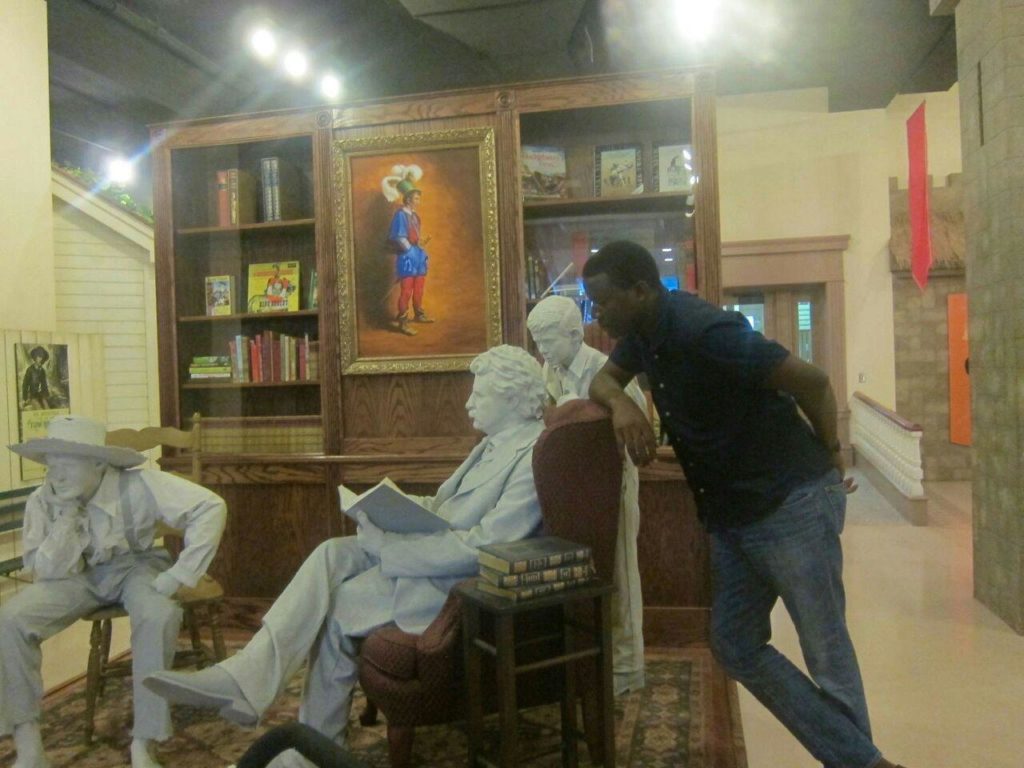
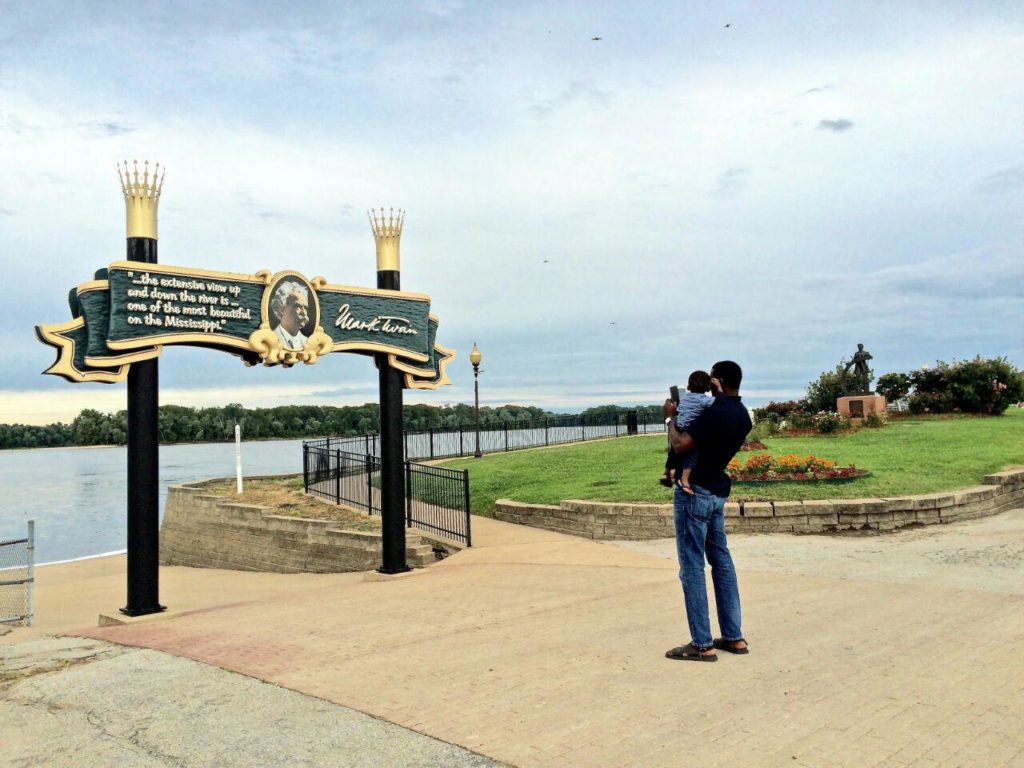
One of the reasons I support continuing the Nigerian NYSC programme is the way it facilitates national (and human) integration, helping us notice what is universal and relatable in others we don’t usually see. Travel, in that way, improves empathy and – even without any conscious attempt on our part – chips away at our hubris and bigoted self-protectiveness.
FT: Let’s briefly discuss your new book, Edwardsville by Heart. Why has it taken you this long to publish any book on travel?
KT: My father will ask ‘Why has it taken you this long to publish any book at all?’. Maybe the blog and the internet are half to blame. I have wanted to write about my experience in Edwardsville for a while, but I never quite resolved whether it would be prose or poetry, fiction or nonfiction. But a while ago, I had a stretch of time to myself and I started writing. It came out as poetry and I let it. Shortly after, my publisher showed interest and here we are. The latter was a bigger motivation. The road to hell is littered with unpublished manuscripts.
I must, however, go back a little and argue that having published a travel blog now for over nine years, with over five hundred thousand words in it, I have done almost as much as having published a book. An e-book is a book, as I argued a while ago. The 21st century has given us both the excuse and the opportunity in web publishing to reach many people we will never meet, at such breakneck speed. The book is sort of a complement to that now, which has its own advantages. And being a poetry book, also a different kind of way of telling much of the same stories.
FT: You described it somewhere as ‘poetry steeped in travel stories’ though most of your travelogues are written in creative nonfiction form. How do you respond to this seeming irony? Is there a thing about audience and readership in this clime that informed your choice?
KT: Is there an irony? I’ve always loved and written poetry (though for a while I resisted the urge to have my first poetry collection be in English at all, for a different reason). It was perhaps just serendipitous that the poetry book should also be a travelogue. It’s another way of pushing my creative limit, I assume, but both are involved with the human condition. There might also be some satisfaction in helping show that poetry doesn’t have to be one thing, or that travel writing isn’t always in nonfiction prose. The ancient art forms of the Yorùbá people, ewì – and to an even large extent, the Odù Ifá – were invented to tell stories and document the journeys of a people through different periods. It’s travel writing, philosophy, poetry mixed together. This book of mine isn’t quite the Odù Ifá, of course, but you get my idea.
FT: What space do you see Edwardsville by Heart occupying in the literary space?
KT: It’s a poetry book, a travelogue, and a memoir in one. It is a map of the American Midwest as I encountered it – and there haven’t been many nonfiction narratives of that particular area by Nigerian or African writers I know of – but also some revelation about my own travel experience limited in time and space. There is some value to that. I hope it encourages more reading and writing of travel literature, which I’m passionate about. Having it in poetry is a homage to my creative beginnings, but there is some satisfaction in having it find its readers in a number of diverse spaces. I wrote this because it is a kind of work I would enjoy reading. So, I hope it spurs more people to provide us with more literature of this kind, or I will have to go write another one.
FT: I have followed your blog for some time and I often wonder what your favourite places are. What travel destinations, if any, do you wish to pursue intimacy with? And why?
KT: There’s a small village in the mountains near the border of Italy with France called Ostana. I have only spent a week there, to receive a prize, but I remember it with such fondness. The quiet, the food, the people, and its positioning between mountaintops capped by snow and clouds hold such warm fuzzy memories. The itinerant shepherds there made the best espresso and conversation.
There are other places too: Ìbàdàn, where I grew up, Àkúrẹ́ where I spent a few months as a young child, Seoul, Rio, Busan, Milan, Turin, Edwardsville, Abẹ́òkuta, Olot, Barcelona, and a little village of Riyom, in Plateau State, where I served (NYSC). I’ve not become irrevocably attached to any specific space, but every place I have visited have left some indelible memory. 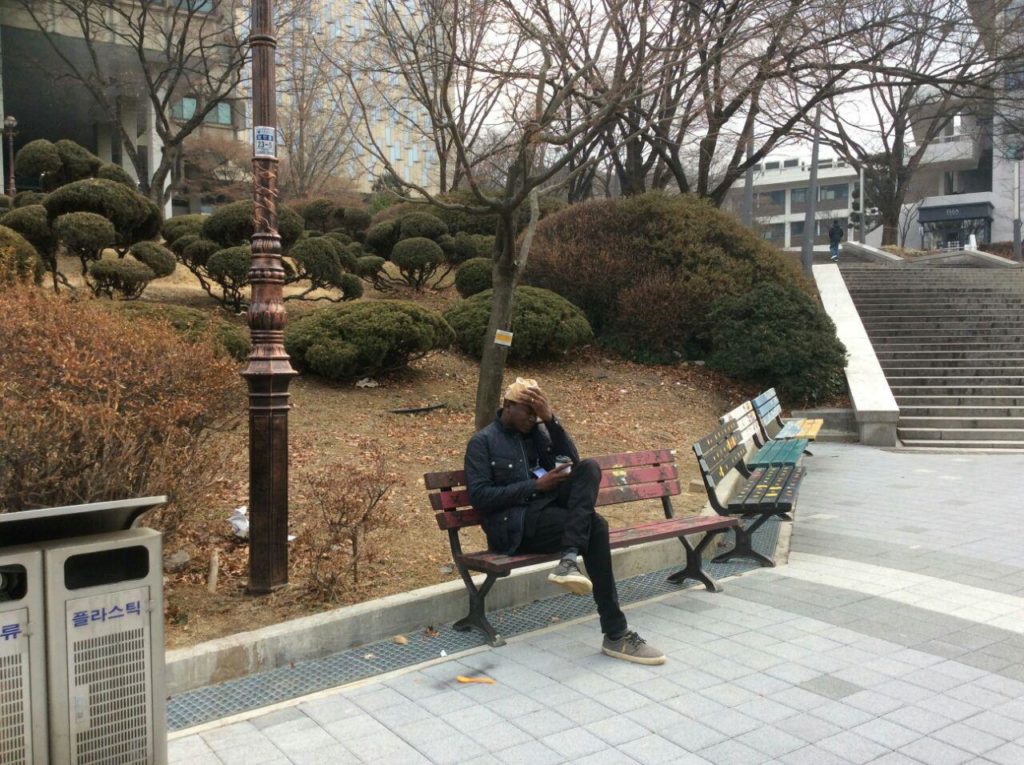
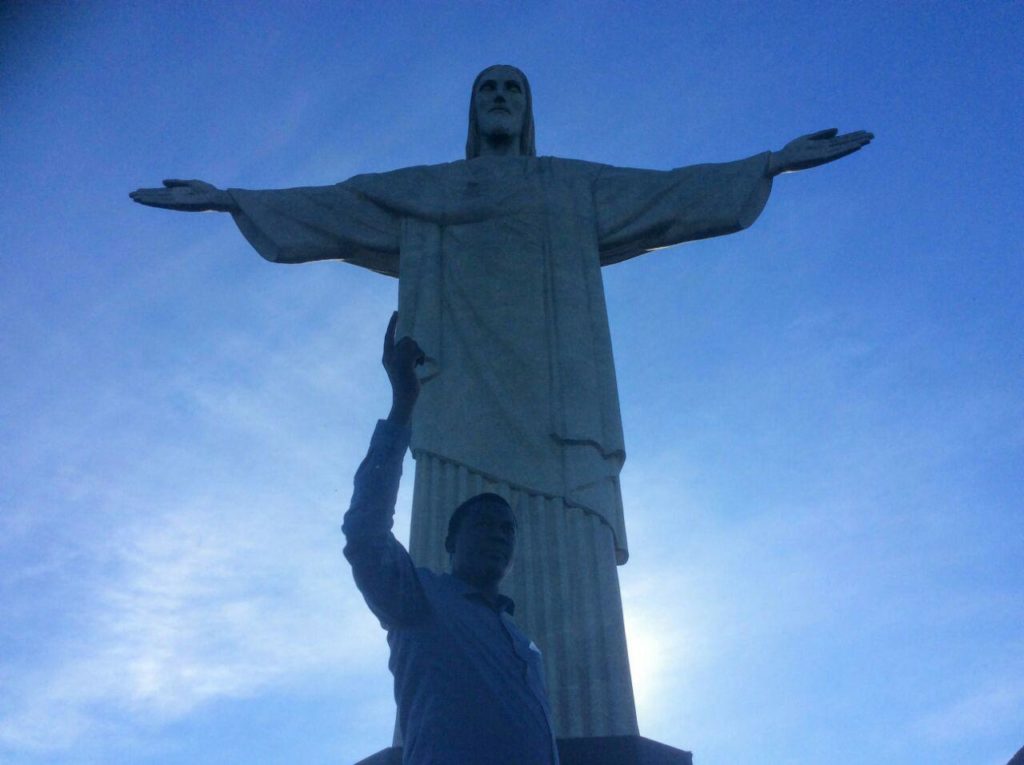
FT: Share any travels you were reluctant to write about, especially if, and/or because, the experiences were unsettling.
KT: Much of the unsettling experiences of travel I’ve had have been with visa officers or the visa processes in general. My most unsettling, ironically, also happened with Italy, where the guy at the consulate in Lagos wanted me to bribe him to get the visa refusal turned into an approval. He never explicitly said it, but I understood the body language. I didn’t budge, and I didn’t get the visa. As a travel writer, there’s nothing I’m reluctant to write about. The only question is whether it’s the right time to tell a story.
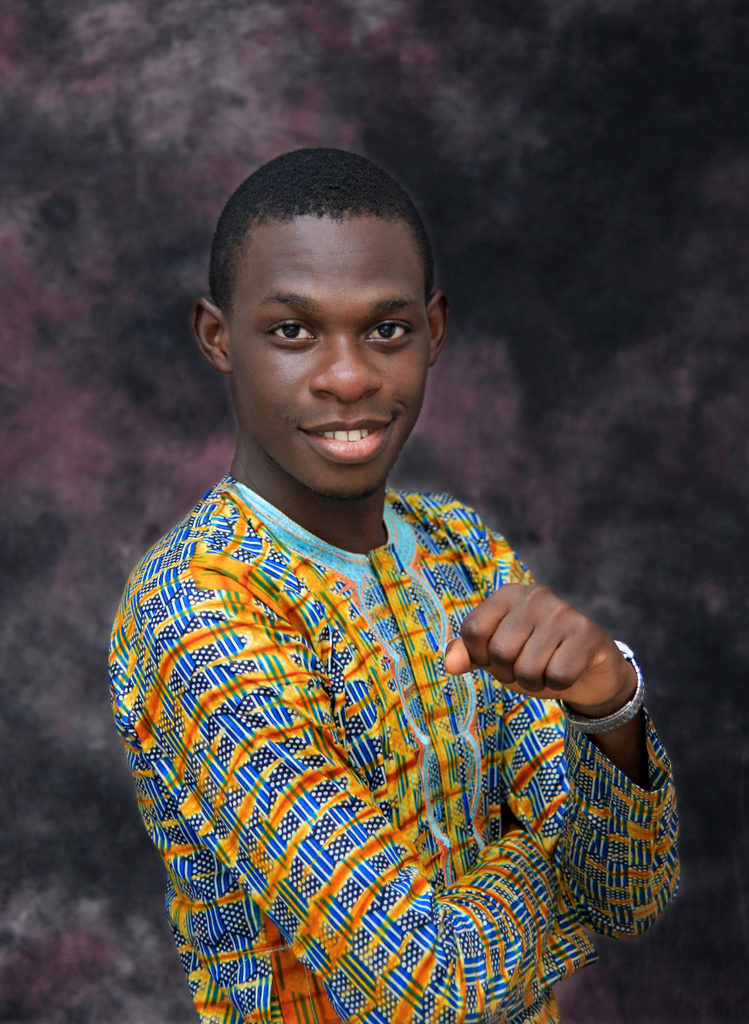 Adédàpò Treasure is a writer and filmmaker.
Adédàpò Treasure is a writer and filmmaker.
